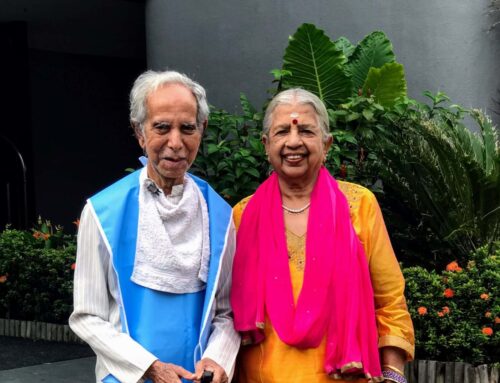Obama and Singh meet at crossroads
Pity Barack Obama. The President of the US is in India for his first visit and expectations, in terms of symbolism and substance, are sky-high.
“Great Expectations to end up in Hard Times,” said the former Indian foreign minister Natwar Singh, borrowing the titles of two Charles Dickens novels.
Mr Obama is visiting during Diwali, India’s largest holiday. He is staying at the Taj Mahal hotel in Mumbai, the scene of massive carnage in November 26 last year; and visiting the ashram of his hero, Mahatma Gandhi.
In between, he and the Indian prime minister Manmohan Singh will negotiate. Mr Singh wants America’s unqualified support for permanent membership in the UN Security Council. He wants the US to remove India’s defence and space organisations from the Entity list. Mr Singh wants help with regional geopolitics, particularly with respect to Pakistan and China.
Mr Obama, on the other hand, just wants to go home. He has a dismal election result to digest, fires to fight, and the Republicans to contend with. To India, he cannot and is not promising much. Instead, he spouts the party line, staying true to script: yes, India is important to the US; it is a crucial partner that will help America to navigate Asia. But no, he cannot comment on anything specific.
Somewhere inside Beijing’s Zhongnanhai, the Chinese party brasses must be chuckling. Get a load of this, someone is saying in Beijing’s colloquial Mandarin. These two foolish democracies are ganging up against us – just goes to show how much China’s star is rising.
Ganging up would not be the term the dignified Mr Singh or Mr Obama would use, even if China looms large in their discussions. Both countries must figure out how to engage with the world’s second-largest economy using new paradigms.
For the Obama administration, China has become a prickly thorn that refuses to be pulled out or go away. For India, China is like the hated elder brother, always racing ahead with the little brother struggling to keep up. Neither country can ignore China and neither is optimistic that Mr Obama’s visit will change anything.
One thing that both countries are optimistic about is trade. Mr Obama brings with him a 250-strong delegation of business leaders who come seeking the one thing that America needs: jobs.
As the Indian economy surges and America’s falters, Mr Obama must forgo his past rhetoric about jobs going from Buffalo to Bangalore and assuage the feelings of Bangaloreans.
He has to come up with a win-win situation and but this is not hard to do. America needs to go easy on the protectionism that has crept into the Obama administration. India needs to shore up its administration in pretty much every sphere: combating Naxal and Maoist threats to internal security; rooting out rampant corruption; improving infrastructure, energy and power; educating its citizens and getting off the top 10 lists of watchdog agencies.
India needs to become the superpower it claims to be. It needs to tell the world that it means business.
My friend, Arun Kumar, is part of the US president’s business delegation. A partner at KPMG, he lives in Los Altos Hills, California. He is in India in his capacity as a member of the board of directors of the US India business council that, along with the Confederation of Indian Industry and the Federation of Indian Chambers of Commerce and Industry, is organising the Obama visit’s business plan, as it were.
Unlike the jaded world-weariness of other political constituencies that stop just short of calling Mr Obama’s visit a total waste of time, these visiting business leaders are positively delirious with optimism.
They want to “add energy to the US India business partnership”, says Mr Kumar. “For many, it will be an in-depth and rapid exposure to India. Others are seasoned India hands and they are looking forward to participating in a visit that should be an important milestone in the US-India partnership journey.”
Calling it a milestone might be a bit much but the timing is fortuitous. Mr Singh is under fire for several domestic mis-steps including his handling of the Commonwealth Games, 2G Spectrum scandal and domestic insurgencies.
“A clean prime minister who is unable to check one of India’s most corrupt governments – what’s the use?” sighed one political activist, echoing the feelings of many who are disenchanted with Mr Singh.
The good news is that Mr Singh is in the fag end of his career and has little to lose. He can take a page off his Chinese counterparts and play hardball with Mr Obama.
The visiting American, on the other hand, is on the defensive. He needs to show something substantial from his India trip to convince voters back home. Business collaborations are the least thorny choice, and for that reason Mr Obama will be inclined to make it happen.
A young man who is pushed to a corner thanks to some disastrous mid-term elections. An old man wants to secure his legacy and has little to lose. Two hundred and fifty business leaders who are eager to make things happen and indeed, create a milestone.
The combination could create miracles, but don’t hold your breath.
Shoba Narayan is a journalist based in Bangalore and the author of Monsoon Diary




Leave A Comment